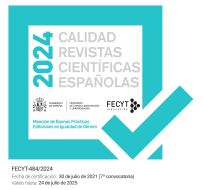The professionalization of schoolteachers in Spain (nineteenth and twentieth centuries): literature, biographies, memoirs
DOI:
https://doi.org/10.5944/hme.1.2015.13232Keywords:
Schoolteachers, Teachers Education, Teachers Salaries, Social Consideration of Teachers, Teachers Associations, SpainAbstract
The texts written by teachers and others involved in primary education serve as an important source of information for the study of the professionalization of the schoolteachers. This article analyzes a novel published in 1865, a compendium of biographies published in 1885 and the memoirs of a schoolteacher who taught during the first thirty years of the twentieth century. The texts give us insight into the profession as it was practiced by male schoolteachers and, to a lesser extent, female schoolteachers. It traces teachers’ origins, their situation and social consideration, feminization, training, pay, membership in teachers’ associations, teachers’ career paths and the relationship of teachers with local authorities. The historical period reviewed ranges from the early nineteenth century until 1936.
Downloads
Downloads
Published
How to Cite
Issue
Section
License
Authors who publish in Historia y Memoria de la Educación agree to the following terms:
- Authors retain copyright and grant the journal right of first publication with the work simultaneously licensed under a Creative Commons Attribution-NonCommercial 4.0 International that allows others to share the work with an acknowledgement of the work's authorship and initial publication in this journal.
- Authors are able to enter into separate, additional contractual arrangements for the non-exclusive distribution of the journal's published version of the work (e.g., post it to an institutional repository or publish it in a book), with an acknowledgement of its initial publication in this journal.
- Authors are permitted and encouraged to post their work online (e.g., in institutional repositories or on their website) prior to and during the submission process, as it can lead to productive exchanges, as well as earlier and greater citation of published work (See The Effect of Open Access).










